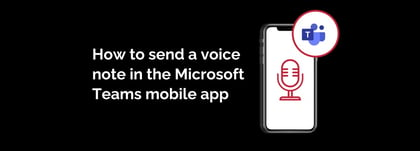
With the rise of digital infrastructure and collaborative platforms, gone are the days of working with physical folders, binders and books.
What hasn't gone away are the same rampant organisational issues that arise with folders.
Instead of endless paper, we now scan endless digital files, searching desperately for that precious image or document we cleverly decided to name ‘File12457’.
Pixellated or not, keeping your folders organised is critical when it comes to managing projects, collaborating with others, and staying productive.
Organised folders will save you and your team from unwanted frustration and wasted time, by making information readily available.
Here are some quick tips to help you better organise your shared folders.
-
Avoid spaces, dashes and underscores
Now, I’m a big fan of the dash. I think it adds a certain - gravitas. Wouldn’t you say?
But that doesn’t mean it meshes well with tech. Not all operating systems handle spaces, dashes and underscores in the same way, meaning using such characters when naming files can cause issues. Leaving your files corrupted and even unretrievable.
Some people use underscores or other ‘special characters’ at the beginning of folder names because it forces the item to “float” to the top of alphabetically sorted lists. It’s a useful quick trick to keep an essential folder in view.
But this adds another problem as the folder no longer appears in its usual spot, so if you try to scan search for your conveniently named folder, you’ll suddenly find its name isn’t all that convenient.
2. Create a naming convention for all of your folders
Nothing is worse than trying to work with others, using shared folders, when there is no established precedent for how the folders will be named and how they will be organised.
Everyone is going to have a different idea of what goes where, and differing standards and expectations when it comes to folder names.
Create a best practices document for your organisation and make it easily accessible to everyone.
Ensure you are teaching new hires this information and monitor if current staff are following it.
If everyone knows the established conventions for folder use and follows them, then your risk of losing track of documents or being held up by poor organisation is significantly reduced.
3. Avoid Redundant Folder Names
Having folders that compete with one another creates unnecessary confusion and hassle.
The most common redundant folder error comes about because of overlapping categories. Say you have a primary folder on ‘budgets’ and one on ‘marketing’. Where does the marketing budget go?
What you should do, instead of having two copies of the same information in both folders is create a subfolder in the budgets folder for ‘marketing’ in the same way you would for other areas of the business. Because the file is more about the budget than it is specifically about marketing.
Generally, it’s best to follow the rule of having a few important broad topic folders that then contain lots of specific folders. This is a logical, streamlined structure that the vast majority of people can use to correctly find, categorise and save information.
4. Reorganise those old files
One of the most important ways to organise your device’s folders is to do some spring cleaning.
A disorganised folder structure, full of old, outdated files and documents that your organisation doesn’t need will cause frustration and chaos for your team. Not to mention that it sets a bad precedent for how employees in your business should keep their folders organised.
Sometimes what’s truly necessary is a fresh start. One way you could do this is by creating a brand new folder structure, and then moving the existing items you need over into its format.
We need to be a bit careful about deletion, unless for compliance reasons. But you point here is a good one. Natural sprawl will happen, you need to reassess and impose order every so often.
-
Remember- some tools can help
As technology continues to rapidly evolve, business and IT become the same. We now use automated tools for processes ranging from lead generation to campaign creation. Each day we have access to a whole host of tools that can make doing business easier and more efficient.
This truth also applies to organising our folders.
AI-generated smart tags are currently being heavily invested in, as a tool that streamlines expert folder organisation and creation. Not to mention the rise of collaboration platforms like Slack and Microsoft teams that provide their built-in organisational frameworks and features.
Researching into the tools that are available to improve your folder organisation may greatly benefit your business.
Keeping your folders organised makes working, no matter what you do, significantly easier and more efficient. Allowing you to stay productive and feel empowered and in control of what you’re doing.
It’s a frequently overlooked but crucial aspect of collaborating with others and is one of the smallest changes you can make that will have a massive impact.
Image credit: Wikipedia


%20(Facebook%20Post)%20(1200%20%C3%97%20628px)-3.png?width=420&height=252&name=Byte%20Size%20(1000%20%C3%97%20700px)%20(Facebook%20Post)%20(1200%20%C3%97%20628px)-3.png)


